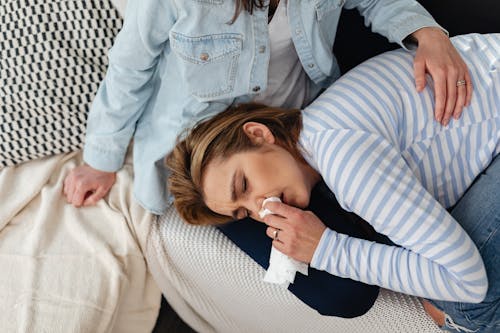Sep 15th 2023
Protecting Your Family from Viruses by Cleaning Indoor Air

Ensuring the air quality in your home is clean and healthy has always been important, but it has taken on even greater significance in recent times with the spread of viruses like COVID-19. See how you can protect your family effectively and efficiently from viruses and other contaminants by cleaning the indoor air you breathe.
The Importance of Indoor Air Quality in Your Home

Indoor air quality (IAQ) refers to the condition of the air inside your home. Poor IAQ can lead to various health issues, including respiratory problems, allergies, and the spread of viruses. Here's why it matters:
- Virus Transmission: Viruses can linger in the air and on surfaces indoors, making clean air crucial to reduce the risk of transmission.
- Respiratory Health: Clean air is vital for those with respiratory conditions like asthma, as pollutants can exacerbate symptoms.
- Allergen Control: Good IAQ helps control allergens like dust mites, pollen, and pet dander, reducing allergy symptoms.
- Overall Well-being: Breathing clean air contributes to better sleep, improved concentration, and enhanced overall well-being.
Methods to Clean Indoor Air

There are several effective methods to improve indoor air quality and protect your family from viruses:
- Air Purifiers: HEPA purifiers can temporarily filter out some pollutant particles, Effectiveness is limited because the filters allow pollutants to be re-released back into the air, and generally are ineffective against odors.
- AirRestore Organic Air Technology: This system takes the ambient air around the unit and pulls it into the Plasma Chamber area. The air is then re-energized and regains its cleaning abilities. The energized air is then dispensed to every corner of the room by the system’s Ionic Engine
- Ventilation: Proper ventilation, including opening windows and using exhaust fans, can help remove indoor pollutants and bring in fresh air.
- HVAC Maintenance: Regular maintenance of heating, ventilation, and air conditioning (HVAC) systems is essential for clean air circulation.
- Humidity Control: Maintain indoor humidity levels between 30% and 50% to prevent the growth of mold and other indoor pollutants.
- Air Quality Monitors: Use air quality monitors to track indoor pollutant levels and take action when needed.
The AirRestore Air Purifier Offers Results

It's nearly unbelievable what AirRestore brings to the table compared to competitor brands. Here are all the benefits you'll receive when you choose AirRestore:
- One time initial investment with warranty. Each unit covers 800 Square feet. and can be held in the palm of your hand
- No filter replacements and minimal cleaning maintenance: No filters to change, buy or upkeep. AirRestore doesn’t use filters because they are so limiting and can release the same pollutants back into the air. The only maintenance required is a quick and simple cleaning of the units.
- Compact and modular: Each unit fits in the palm of your hand and can be inconspicuously placed almost anywhere. Whole-Home Systems are designed to be easily customizable to your personal air quality concerns.
- Viral Bacterial and Allergen control: Each AirRestore unit dispenses safe and natural elements throughout the room to give the indoor air a natural energy. These elements actively attach to and break down pollutants by altering them, weighing them down, and effectively restoring the air to a cleaner, healthier, fresher state.
- All-Day odor control: Effective on pet kennels and litterbox odors, laundry odors, cigarette smoke, cooking odors, and more.
- Energy Efficient: each individual unit is designed to restore the air for up to 800 square feet. Running each unit for 24 hours is the equivalent to having a 60 watt bulb on for 1 hour.
- Very low noise: Nearly imperceptible to hear
Additional Tips for Clean Indoor Air
In addition to owning an AirRestore, here are some additional tips to help ensure your home has the cleanest air:
- Regular Cleaning: Dust, vacuum, and clean surfaces frequently to reduce the buildup of allergens and pollutants.
- No Smoking: Implement a strict no-smoking policy indoors to prevent tobacco smoke from contaminating the air.
- Plants: Some indoor plants can help improve air quality by absorbing pollutants and releasing oxygen.
- Minimize Chemicals: Use natural cleaning products and reduce the use of chemical air fresheners and fragrances.
Ensuring clean indoor air is an ongoing process, and regular maintenance and vigilance are key to its success. Protecting your family from viruses and maintaining clean indoor air is essential for their health and well-being. By implementing these tips, and using the right technology, you can create a healthier and safer indoor environment for you and your loved ones.
AirRestore

